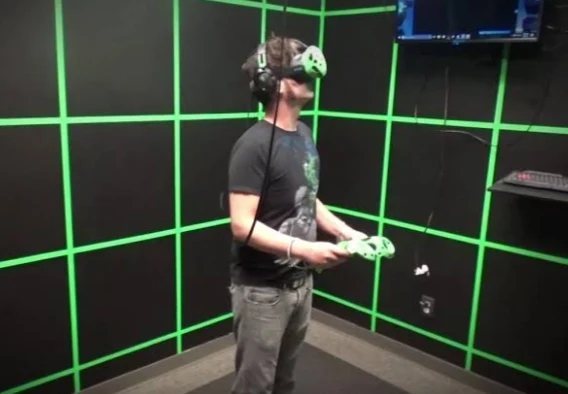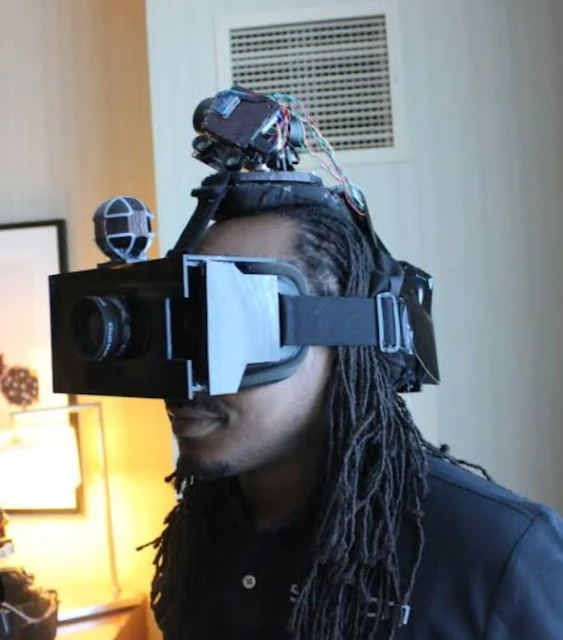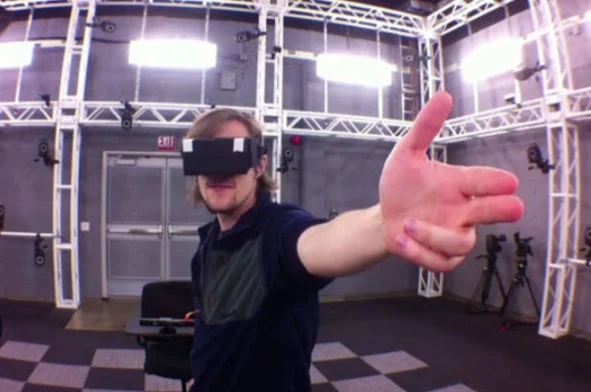Project Holodeck by Meta: A Dive into the Future of Virtual Reality?
Meta, formerly known as Facebook, has been a major player in the development of virtual reality (VR) technology. While there haven't been any official announcements regarding "Project Holodeck" by Meta, the name itself evokes a connection to the holodeck from Star Trek, a fictional room that can simulate any imaginable environment.
This leads to speculation about what Meta might be working on. Here's a table outlining what Project Holodeck could potentially entail:
| Feature | Description |
|---|---|
| High-Fidelity VR | Project Holodeck could be aiming to create a VR experience indistinguishable from reality. This would involve advancements in resolution, refresh rate, and field of view to eliminate any sense of being in a virtual world. |
| Sensory Integration | Incorporating features that engage other senses like touch, smell, and even taste could further blur the lines between reality and VR. |
| Haptic Feedback | Advanced haptic technology could create realistic sensations of touch, allowing users to interact with virtual objects in a way that feels natural. |
| Brain-Computer Interfaces (BCIs) | BCIs could potentially allow for direct control of the VR environment through brainwaves, eliminating the need for traditional controllers. |
Potential Applications
These advancements could revolutionize various fields:
- Education and Training: Imagine immersive historical simulations or practicing surgery in a risk-free VR environment.
- Entertainment: VR experiences could become indistinguishable from real-world adventures or social interactions.
- Work and Collaboration: Project Holodeck could enable remote teams to work together in a shared virtual workspace.
Challenges and Concerns
While Project Holodeck is an exciting concept, there are significant challenges to overcome:
- Technical Hurdles: The technology required for high-fidelity VR and sensory integration is still under development.
- Safety and Health Issues: Spending extended periods in a completely simulated reality could have psychological and physical consequences.
- Accessibility and Cost: Making such advanced VR affordable and accessible to everyone would be a major challenge.
Meta's VR Ambitions
Meta has already invested heavily in VR, acquiring companies like Oculus and pouring resources into VR research. Project Holodeck might be their ultimate goal, but it's important to remember this is speculation.
Whether or not Project Holodeck becomes a reality, Meta's efforts are sure to shape the future of VR. It will be interesting to see how far they push the boundaries of this immersive technology.
Project Holodeck by Meta: Potential Technology Uses in a Hyper-Realistic VR Experience
While there's no official confirmation of Project Holodeck by Meta, the name itself sparks curiosity. Inspired by the Star Trek holodeck, it suggests a VR experience indistinguishable from reality. Let's explore potential technology uses based on this speculative concept:
Potential Technology Uses of Project Holodeck (Speculative):
| Field | Description |
|---|---|
| Education and Training | * Immersive Historical Simulations: Walk through ancient Rome or experience the moon landing firsthand. * Risk-Free Skill Development: Practice surgery in a virtual operating room or learn bomb defusal in a safe VR environment. * Interactive Learning Experiences: Explore the human body in 3D or dissect a virtual frog in biology class. |
| Entertainment | * Hyper-Realistic Virtual Travel: Explore exotic locations or even travel to space from your home. * Interactive Storytelling: Become part of a story, interacting with characters and influencing the narrative. * Virtual Concerts and Events: Attend live concerts or sporting events with a front-row seat, no matter your location. |
| Work and Collaboration | * Shared Virtual Workspaces: Teams from different locations can collaborate in real-time on projects within a virtual environment. * Advanced Product Design and Prototyping: Design and test products virtually before physical production begins. * Virtual Meetings and Conferences: Hold more engaging and interactive meetings with colleagues or clients from around the globe. |
| Other Potential Uses | * Therapy and Rehabilitation: VR could be used for exposure therapy or physical rehabilitation exercises in a controlled environment. * Social Interaction: Create virtual communities for people with shared interests or overcome social anxieties through VR interactions. * Scientific Research: Conduct experiments or simulations in a virtual lab with reduced costs and risks. |
Important Considerations
These uses are based on speculative features and come with potential challenges:
- Technical limitations: Current VR technology may not be powerful enough to fully support all these applications.
- Safety and health concerns: The long-term effects of extended VR use need thorough research.
- Accessibility and cost: Making advanced VR affordable and accessible to everyone would be a major hurdle.
The Future of VR Technology
Project Holodeck might be the ultimate goal, but even without it, Meta's VR research holds promise for these potential applications. Advancements in VR technology could revolutionize various fields and reshape how we learn, work, and play.
Project Holodeck by Meta: Fact vs. Fiction
There is currently no data or facts to confirm the existence of Project Holodeck by Meta. The name itself originates from Star Trek and refers to a fictional room that can simulate any environment.
Here's a breakdown of what we know and what's speculative:
Facts:
- Meta (formerly Facebook) is a major player in VR technology through their acquisition of Oculus and investment in VR research.
- There is no official announcement or confirmation regarding Project Holodeck.
Speculation:
- The name Project Holodeck suggests Meta might be working on creating a highly immersive VR experience.
- This speculation includes features like:
- High-fidelity VR indistinguishable from reality
- Sensory integration incorporating touch, smell, and taste
- Advanced haptic feedback for realistic touch sensations
- Brain-Computer Interfaces (BCIs) for direct VR control
While these features are exciting, they are purely speculative.
Data We Do Have on Meta and VR:
- Meta has invested heavily in VR through Oculus, a leading VR headset brand.
- VR technology is constantly evolving with advancements in resolution, refresh rate, and field of view.
- There are ongoing explorations into haptic feedback suits and gloves for VR.
- BCI research is a developing field with potential applications in VR control.
Future of VR by Meta
Whether or not Project Holodeck is a real project, Meta's VR efforts hold weight. Here's some data to consider:
- Meta's investments suggest a strong commitment to VR development.
- Their research could lead to advancements in VR technology with broader applications.
In Conclusion
Project Holodeck by Meta is an intriguing concept, but for now, it remains speculation. However, Meta's existing investment in VR positions them as a key player in shaping the future of this immersive technology.
Frequently Asked Questions about Project Holodeck
Project Holodeck is a research project aimed at creating a fully immersive virtual reality experience. It's inspired by the fictional Holodeck from the Star Trek franchise, which allows users to interact with simulated environments in a highly realistic way.
General Questions
- What is the goal of Project Holodeck?
- The goal of Project Holodeck is to develop a virtual reality system that can create fully immersive, interactive experiences.
- How does Project Holodeck differ from other VR systems?
- Project Holodeck aims to go beyond traditional VR by incorporating advanced technologies like haptic feedback, olfactory stimulation, and even neural interfaces.
Technical Questions
- What technologies are being used in Project Holodeck?
- Project Holodeck leverages a wide range of technologies, including:
- High-resolution displays
- Advanced tracking systems
- Haptic feedback devices
- Olfactory stimulation devices
- Neural interfaces (in the future)
- Project Holodeck leverages a wide range of technologies, including:
- What challenges are researchers facing in developing Project Holodeck?
- Some of the challenges include:
- Creating realistic and immersive environments
- Developing intuitive and natural interactions
- Ensuring user comfort and safety
- Some of the challenges include:
Practical Questions
When can we expect to see a consumer version of Project Holodeck?
- Project Holodeck is still in its early stages of development, and it may be several years before a consumer version is available.
What potential applications does Project Holodeck have?
- Project Holodeck could have a wide range of applications, including:
- Gaming and entertainment
- Education and training
- Healthcare
- Architecture and design
- Project Holodeck could have a wide range of applications, including:
What ethical considerations need to be taken into account with Project Holodeck?
- Ethical considerations include:
- Privacy
- Safety
- Addiction
- Social isolation
- Ethical considerations include:



